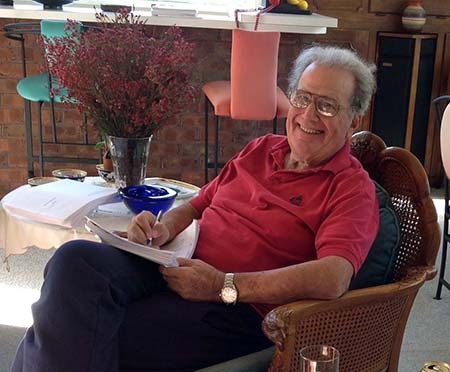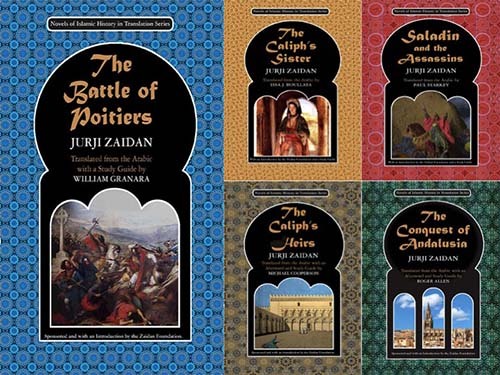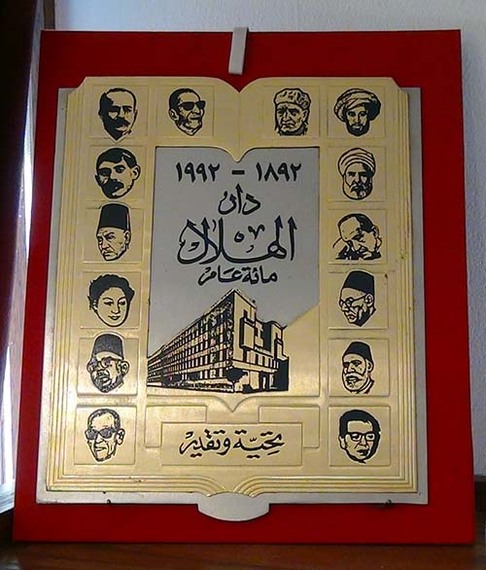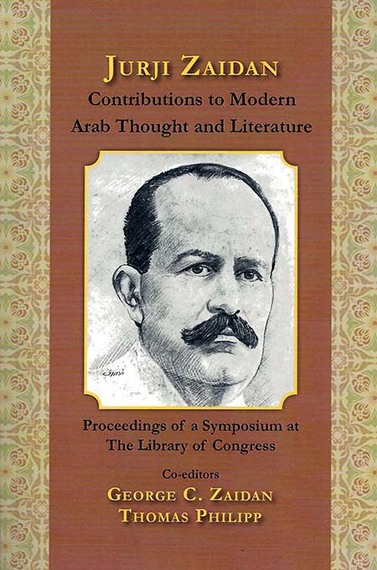He was a pillar of «Al Nahda», the Arab Awakening movement, who died a century ago but his legacy of promoting cross-cultural understanding, Islamic civilization's riches, and revival of the Arabic language, lives on.
The works of Jurji Zaidan (1861-1914), the prolific Lebanese-born novelist, historian, journalist, educator and intellectual, transcend the ages. His contributions have emerged in English for the first time despite his continued fame across the Arab and Muslim world.
«I think it's important to expose some parts of the Western world, especially the English speaking one, to the intellectual movements that went through the Arab world,» said George C. Zaidan, the author's grandson, adding that extreme Islamic movements had contributed to warped images of the region's history.
George oversaw the translation of five of Jurji's 22 novels that would appeal to Western audiences and organized an international symposium at the Library of Congress highlighting his grandfather's illustrious career.
«The Conquest of Andalusia», «The Caliph's Sister», «The Caliph's Heirs», «The Battle of Poitiers», and «Saladin and the Assassins» are available through Amazon.
«There was a very modest cultural, educational dimension in what I was doing, which was to underline the strong secular and liberal currents that sprang in the Arab world,» he said. «Additionally, humanizing a people leads to greater understanding.»
Two of the five novels were set in Spain, two during the 'Abbasid period when Baghdad was the center of learning and culture, and a fifth focused on Salah El Din (Saladin).
Jurji Zaidan founded Al-Hilal (The Crescent) in Egypt in 1892, one of the earliest Arabic-language literary magazines, and introduced the historical novel into Arabic literature. His novels, used as means to advance social reform, reached back to pre-Islamic days and stretched to modern times.
He wrote many of the articles in «Al Hilal,» was the editor, was involved in production and managed the whole enterprise. He became known not just in Egypt but in most Arabic-speaking countries.
By the time of its 100th anniversary, the «Matb'at Al Hilal» printing press had become «Dar Al Hilal», one of the largest publishing houses in the Arab world, producing magazines for and about women, children, movie stars, and, a publication in French.
«My grandfather looked at journalism as culture, an education, an enterprise more than as a form of political expression,» said George. «He was careful to be above the fray, to approach issues in terms of objectivity.»
Ironically, Jurji Zaidan's father, who owned a restaurant in Beirut, felt education beyond primary school was a waste of time once one could add and subtract to keep accounts and made the boy work with him.
But Jurji was set on learning, got a private tutor at night, studied, and passed the entrance exam to the Syrian Protestant College (today the American University of Beirut), without having attended middle and high school.
He enrolled in the medical faculty but when a student strike disrupted studies after the founding missionaries barred certain faculty members from teaching Darwin, Jurji's mother lent him money, and he took a boat to Egypt.
The Christian Zaidan viewed history as a modern scientist, explaining it in rational terms and abstracting it from purely religious interpretations which had been the norm.
At a time when Arabic had been marginalized by centuries of Ottoman rule over much of today's Arab world, Jurji Zaidan wrote extensively about how the language had evolved.
He felt classical Arabic should be the object of modernization, not spoken colloquial Arabic in all its permutations, and was instrumental in the establishment of "Al Majma' Al Loghawi" (The Arabic Language Academy) to attain that goal.
As part of the research, George and other scholars discovered 100 translations of the 22 novels in 10 or 11 languages, with each book having been rendered into languages of countries with Muslim populations that did not speak Arabic.
A large number were translated to Persian, Ottoman (old Turkish), Urdu (the main language of Pakistan), Indonesian and Chinese for the Uyghur Muslim population.
There were another five translations in French, one in Spanish, and one in German, but none in English.
George, who heads The Zaidan Foundation, co-edited "Jurji Zaidan's Contributions to Modern Arab Thought and Literature," the proceedings of the Library of Congress symposium, with noted historian Thomas Philipp.
The webcast is available at: http://www.loc.gov/today/cyberlc/feature_wdesc.php?rec=5576 (Part I) and http://www.loc.gov/today/cyberlc/feature_wdesc.php?rec=5575 (Part II).
Philipp is author of "Jurji Zaidan and the Foundations of Arab Nationalism" published by Syracuse University Press.




